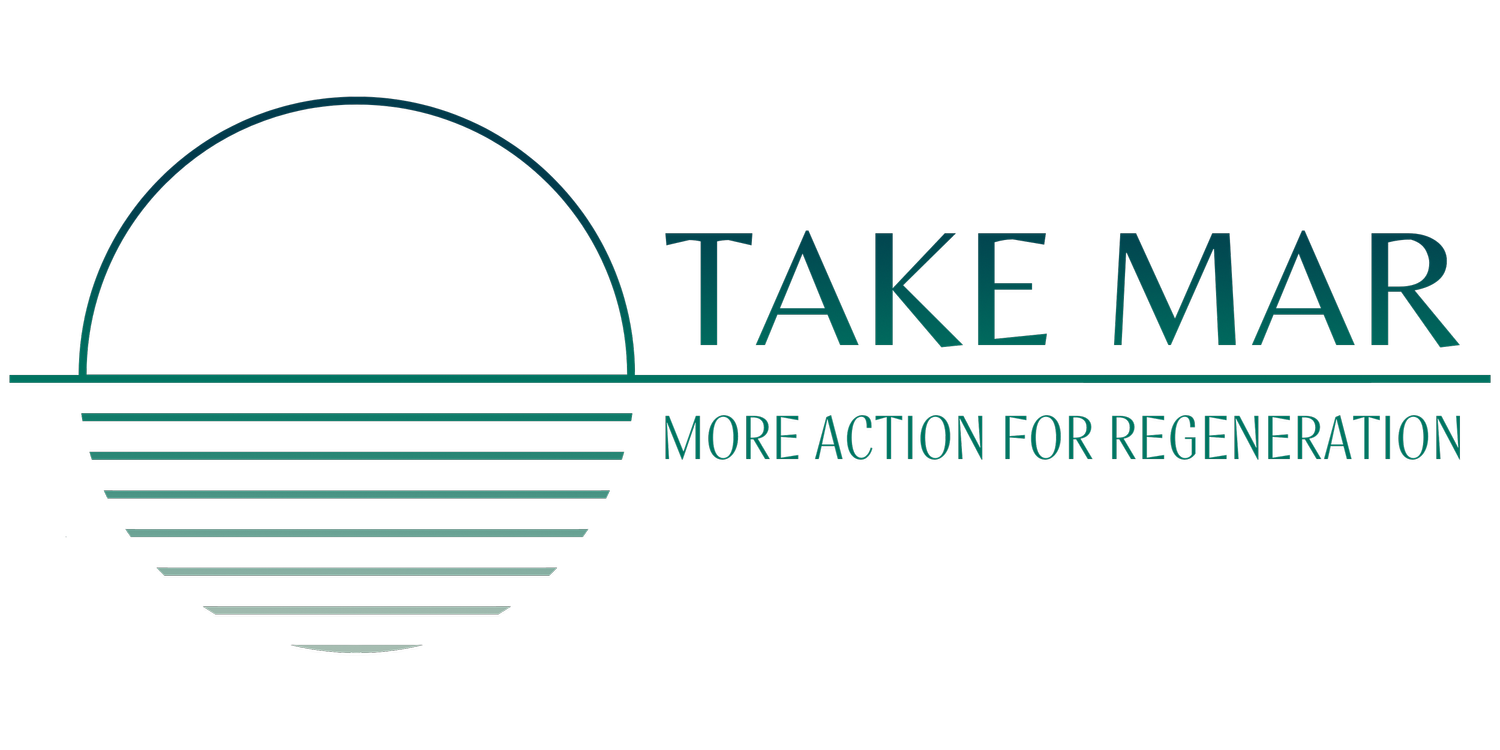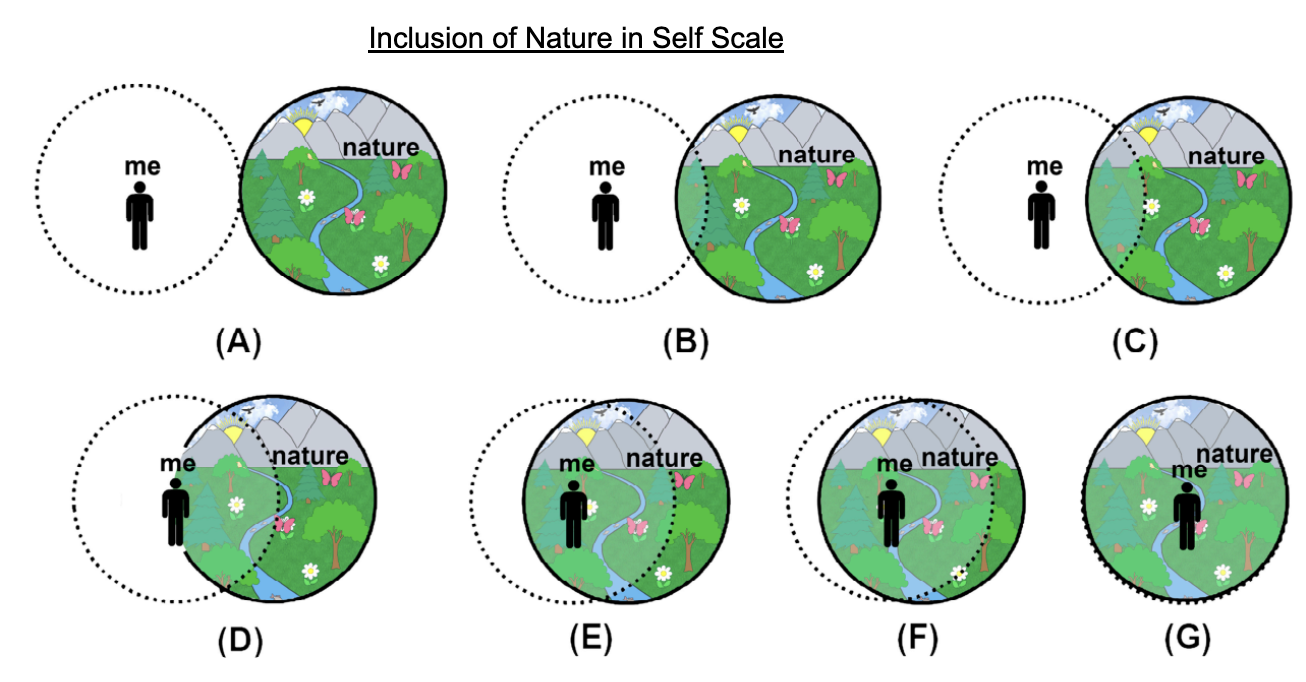Nature Connectedness
It’s all about relationships
Giving and receiving love is at the heart of being human. As social beings, our health and happiness is dependent on relationships, and we would like to draw attention to one of the most important, and often neglected, relationships in our lives. This is a story of unconditional love that in the words of Anne Birch, Marine Conservation Manager for the Florida Nature Conservancy, “straddles the connection between land and sea, nature and humans” right here in Tampa Bay (The Nature Conservancy, 2020).
Dearest humans,
If you are a fan of Gary Chapman’s The Five Love Languages: The Secret to Love that Lasts, you will know that I love you through my acts of service, my gifts, and the time I spend with you. I filter pollutants, nitrates, and phosphates from Tampa Bay so that you have safe and clean water in which to play. My canopy offers you shade from the hot, Florida sun and my roots sequester carbon underwater to offset the impact of greenhouse gas emissions on climate change. I love sharing time with you whether you are in a kayak, canoe, or mask and snorkel. I alleviate stress and anxiety and if you spend enough time with me, I may even increase your physical health, immune function and longevity. I love other animals too. I let oysters hang from my roots, crabs scurry up my trunks, birds nest in my branches, and juvenile fish grow in my protected waters. Many of the fish I help rear will eventually become a meal for you. I am here for you economically too. I reduce storm surge impacts from coastal weather events and prevent major economic losses to your homes and infrastructure. I will always take care of you.
Love,
A Mangrove Forest
These ecosystem services are a beautiful expression of unconditional love, but this love story has a tragic end unless we begin to heal and nurture our relationship with the Earth. Relationships are never easy, but they are an essential part of our wellbeing. Mangrove forests that once thrived in Florida are now a threatened ecosystem as a result of being poisoned by oil and herbicides, their roots suffocated (flooded) by dredging and sea level rise, and forests fully lost to sea views and urban development (Florida Museum, 2018). Since the 1900s, Tampa Bay has lost 50 to 60% of its mangrove forests (Moses, 2022). Our commodity driven approach to this relationship is not healthy, and yet despite human animosity, mangrove forests continue to share their gifts. One of the greatest things about unconditional love is that it is fully accepting and wants nothing in return - but relationships without reciprocity do not last.
Sheehan D. Fisher, a psychologist and relationship expert with Northwestern Medicine identifies the main tenets of healthy relationships. People in healthy relationships listen to each other, trust and respect one another, make time for each other, engage in healthy activities together, and avoid focusing on what they want to get from the other person and focus on how the relationship can be mutually beneficial. According to Fisher, it is not enough to have a single relationship. It is important to have a variety of different types of relationships to sustain well-being and quality of life (Northwestern Medicine, 2021).
Considering that there is an abundance of epidemiological research proving that the mental and physical health benefits of human-to-nature relationships are similar to those of human-to-human ones, it only makes sense to expand our network of relationships to encompass the natural world - all living organisms and the environments in which they thrive.
In fact - the need for this human-nature connection may be embedded in our genes. Since the dawn of human existence, our survival has depended upon ecosystem services. Evolutionarily, we have spent the majority of our lives living inextricably linked with nature in wild and rural environments. The urbanized conditions in which we live today represent a very short piece of human history. (Seymour, 2016).
As such the academic study of nature connectedness is often rooted in the Biophilia Hypothesis. Biophilia literally translates to “Love of life.” Bio is “life” and philia is “love.” The term was popularized by Edward (E.O.) Wilson in his book 1984, where Wilson explains the emotional connection between human beings and other sources of life as an affinity rooted in human genes and biology. The theory posits that because human evolution occurred through interaction with a solely natural world, humans carry a “biological-based biophilic tendency” that “extends far beyond the simple issues of material and physical sustenance to encompass the human craving for aesthetic, intellectual, cognitive, and even spiritual meaning and satisfaction (Barbiero & Berto, 2021).” At its core, it’s an instinctive preference for natural environments and other living things based on thousands of years of living closely with nature.
Stress Reduction Theory and Attention Restoration theory support the Biophilia Hypothesis and have established a framework to study the effects of human-nature connectedness. Attention Restoration Theory (ART) suggests that nature can restore humans’ ability to concentrate, while Stress Reduction Theory proposes that time spent in nature results in a physiological and in turn psychological response that lowers levels of stress (Ohly et al., 2016). In testing these theories, research shows that humans prefer scenes of nature, have improved cognitive function when connecting with nature, and instinctive reactions to specific natural stimuli (Seymour, 2016).
We may never know if our need to connect with nature is biologically predisposed, but we do know that the research is there to show us that we feel better when we engage in a healthy relationship with it (American Psychological Association, 2020). There is nothing to lose and everything to gain by diving into a new relationship or deepening an existing one with the natural world. Like with all relationships, “It is better to have loved and lost than never to have loved at all.” And as mangrove forests have shown us, they will continue to love and support us as long as we engage in a mutually beneficial relationship with them.
So begin to consider your love language. What kind words or gentle touches will you share? What gifts or acts of service will you engage in? How will you make time to spend with the mangrove forests? And within each of these interactions, how will you be completely, 100% present? For it is in this space, that you may begin to see the mangroves’ beauty, hear their wise-old stories, and feel their presence as a part of your own. It is in the connectedness of social and ecological exchanges that compassion grows and within the relationship, lies all of the answers, and in turn the happy ending to this story.
How do you see yourself now? As you build these relationships with nature around you, notice if anything changes.
American Psychological Association. (2020, April 1). Nurtured by nature. Monitor on Psychology, 51(3). https://www.apa.org/monitor/2020/04/nurtured-nature
Barbiero, G., & Berto, R. (2021). Biophilia as Evolutionary Adaptation: An Onto- and Phylogenetic Framework for Biophilic Design. Frontiers in Psychology, 12. https://doi.org/10.3389/fpsyg.2021.700709
Florida Museum (2018). South Florida Aquatic Environments, Impacts on Mangroves. Retrieved January 10, 2023, from https://www.floridamuseum.ufl.edu/southflorida/habitats/mangroves/impacts/
Moses, J. (2022). Tell Me About: Threats to Mangroves in Florida. Florida Museum. Retrieved January 10, 2023, from https://www.floridamuseum.ufl.edu/southflorida/habitats/mangroves/impacts/
The Nature Conservancy (2020). The Importance of Mangroves. Retrieved January 10, 2023, from https://www.nature.org/en-us/about-us/where-we-work/united-states/florida/stories-in-florida/why-mangroves-important/#elb=1
Northwestern Medicine (2021). 5 Benefits of Healthy Relationships, Why Healthy Relationships Are So Important. Retrieved January 10, 2023, from https://www.nm.org/healthbeat/healthy-tips/5-benefits-of-healthy-relationships
Ohly, H., White, M., Wheeler, B., Bethel, A., Ukoumunne, O., Nikolaou, V., & Garside, R. (2016). Attention Restoration Theory: A systematic review of the attention restoration potential of exposure to natural environments. J Toxicol Environ Health B Crit Rev, 19(7), 305-343. https://doi.org/10.1080/10937404.2016.1196155Seymour, V. (2016). The Human–Nature Relationship and its impact on Health: A Critical Review. Frontiers in Public Health, 4(260). https://doi.org/ 10.3389/fpubh.2016.00260


